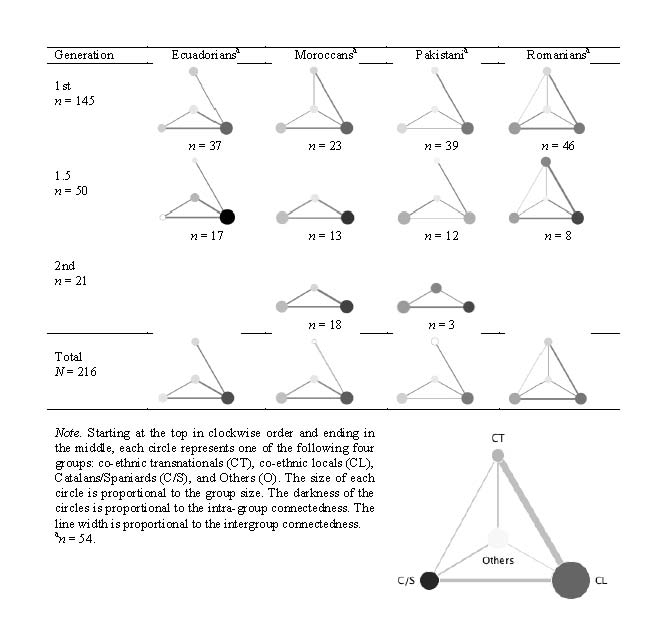Using social-network methodology, we asked Moroccan, Pakistani, Ecuadorian, and Romanian immigrants residing in Barcelona to nominate 25 individuals (i.e., alters) representative of their habitual social networks and to provide demographic (e.g., ethnicity), relationship type (e.g., family, friend, neighbor), and structural (who knew whom) information for each of these alters. Even after controlling for individual-level demographic variables (e.g., time in Spain, income, education), the content and structure of these immigrants’ personal social networks predicted their level of adjustment (both psychological and socio-cultural) and their feelings regarding how compatible their ethnic and Catalan cultures are.
Specifically, the overall degree of cultural diversity in the network, the amount of Catalan (but not Spanish) “weak” ties (i.e., acquaintances, colleagues, neighbors) in the network, and the amount of interconnectedness between local coethnic and Catalan/Spanish alters positively predicted the above adjustment outcomes. Furthermore, against a “culture and language similarity” hypothesis, Moroccan and Pakistani participants had social networks that were more culturally well-integrated, relative to Ecuadorians and Romanians. Results from this study attest to the importance of examining actual intercultural relations and going beyond individuals’ verbalized acculturation preferences to understand immigrants’ overall adaptation and cultural identity dynamics. Lastly, results highlight the interplay between interculturalism experienced at the meso, interpersonal level (i.e., having culturally diverse networks that also include ties between ethnic and Catalan alters) and intra-personal, subjective level (i.e., feeling that ethnic and Catalan cultures are compatible).
References
